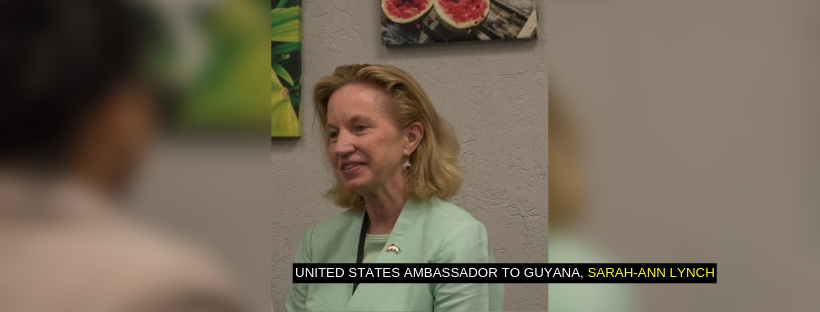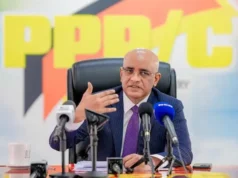The Ministry of Public Health has been able to improve the clinical capacity of its service providers when it comes to newborns and small babies. This achievement came as a result of strategic partnerships between the governments of Guyana and the United States in the quest to provide clinical and non-clinical Zika services intended for babies, toddlers, and their families across Guyana.
The venture, Maternal and Child Survival Programme (MCSP), is one that spanned the period January 1, 2018 through March 1, 2019, and was aimed at equipping medical personnel with knowledge on how to treat patients who have contracted the Zika virus, and disaster risk management.
Speaking at a MCSP Zika response national dissemination close-out forum earlier today, United States Ambassador to Guyana, Sarah-Ann Lynch, said that it shows that significant impact has been made to fight the first outbreak of Zika and prepare Guyana for even more progressive moves in this regard.
The project is one that not only improved health workers’ ability to provide therapeutic, early stimulation to children experiencing developmental delays but also psychosocial support to mothers and families affected by Zika.
Though the symptoms of Zika are not present or mild in some cases which last up to one week, the virus can cause serious birth defects to the unborn child’s brain and physical appearance.
The virus could be transmitted not only through infected mosquitoes but from an infected mother to her unborn child and via unprotected sex with a person who has the virus, according to the Centre for Disease Control and Prevention.
In keeping with government’s mandate of promoting good health and preventative care for all, this initiative goes hand in hand with the United Nations Development Programme (UNDP) Sustainable Development Goal (SDG) 3, Good Health and Well-being.
The aim is to achieve universal health coverage and provide access to safe and affordable medicines and vaccines for all. Supporting research and development for vaccines is an essential part of this process and to make a bold commitment to end AIDS, tuberculosis, malaria, and other communicable diseases by 2030.













